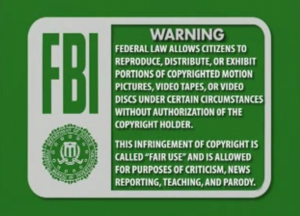Both Tim Wu and Nick Bilton make good points in their pieces on digital snooping. Wu points to the structure of the information industry, and the consequences of a centralized and monopolized industry on the ease with which governments can spy on the communications between it’s citizens. Wu also points out that it may not matter whether a monopoly like Google does or does not want to cooperate with the state; such monopolies do not have a choice because current laws are designed to make such organizations complicit in state actions. Bilton’s argument is very similar, but instead of focusing on the structure of the industry, it foregrounds the everyday practices of sharing data online, and highlights the one big truth about the Internet: nothing you do on the Internet can be completely erased from it. Contradicting Wu a little bit, Bilton seems to argue that it may not matter if there are one or multiple companies to track since a proliferation of web-services and types of data does not preclude government spying.
Both Wu and Bilton are very good at stating the problem, but their stated solutions seem to be inadequate. Wu indicates that breaking up monopolies (the government’s job) should do the trick; but following his own argument, there would be no incentive for the national-security state to enforce antitrust regulations. Wu also suggests that, at the personal level, we start using multiple search engines, social media and other web-services in order to scatter the data and make it harder for the government to watch us, and given what we know about how the government currently collects information from the Internet, this may be a good strategy. But Bilton contradicts this – and a quick understanding of the infrastructure of the Internet shows that data can be ‘wiretapped’ from any number of points on the Internet’s infrastructure. Bilton, offering some solutions as well, suggests that there are ways that technologists can out-innovate the government, but he does not provide any examples of this.
I’m not trying to be overly-critical of Wu and Bilton here; I understand that they have thought about this much more and for much longer than I have. Which makes my point even starker – are there even adequate solutions for this problem if people like Wu and Bilton cannot provide any? Bilton says that there are ways to out-innovate the government, but would that look like closing up all sorts of OSS codes, or encrypting our data to the point where it is not publicly shareable? If one of the design principles behind the Internet is ‘openness’ and if we are not quite ready to sacrifice that principle, should we even change anything about the Internet or how we act on it? Or, should we change the source of the problem – the government spying/the spying government.
This also brings up the question of academic (and pedagogical) freedom – in an era of heightened government (and non-government) watching, how do we maintain the integrity of academic freedom? When we put our names on things we say on Twitter and Facebook, we are also putting the weight of our intellectual training and institutional affiliation behind those arguments. At the same time, we are risking unwarranted scrutiny by the government or potential employers. And this can also get particularly dicey with teaching. How can we successfully teach our students to be openly critical of the government and its policies in hybrid or online courses? This question reminds me of Mark D. Pepper’s Teaching Fail article on JITP, where he describes the reaction of other students when a student, in response to an assignment prompt, posted a picture of the September 11 attacks on the Twin Towers with the word ‘Deserved’ on the class blog. Pepper does not mention this in his article (since his point is something else), but one could imagine such a posting being picked up by the snooping agents of the government. I offer this example to make a subtler point though – given that we now have a deeper understanding of how and what the government spies on, do we, in small ways, filter our online pedagogy, become less critical or radical, or even change our way of thinking? When we write nowadays, we almost always do it online, and so I wonder whether writing online, given the context of a digital panopticon, changes what and how much we write? In other words, do we subconsciously censor ourselves (or change our thinking altogether) when we write online in a way we would not if we wrote on paper?
To me, it seems that if we follow Wu and Bilton’s suggestions on how to out-maneuvour the government, we may end up going down a spiral of self-censorship, privacy, closed-up coding and a clamp-down on sharing that is so central to the structure of Web 2.0 technologies and the democratic ideologies and practices that they seem to encourage right now. Confronting the government’s spying policies may be a longer and harder fight, but it also may be more fruitful at the end.


